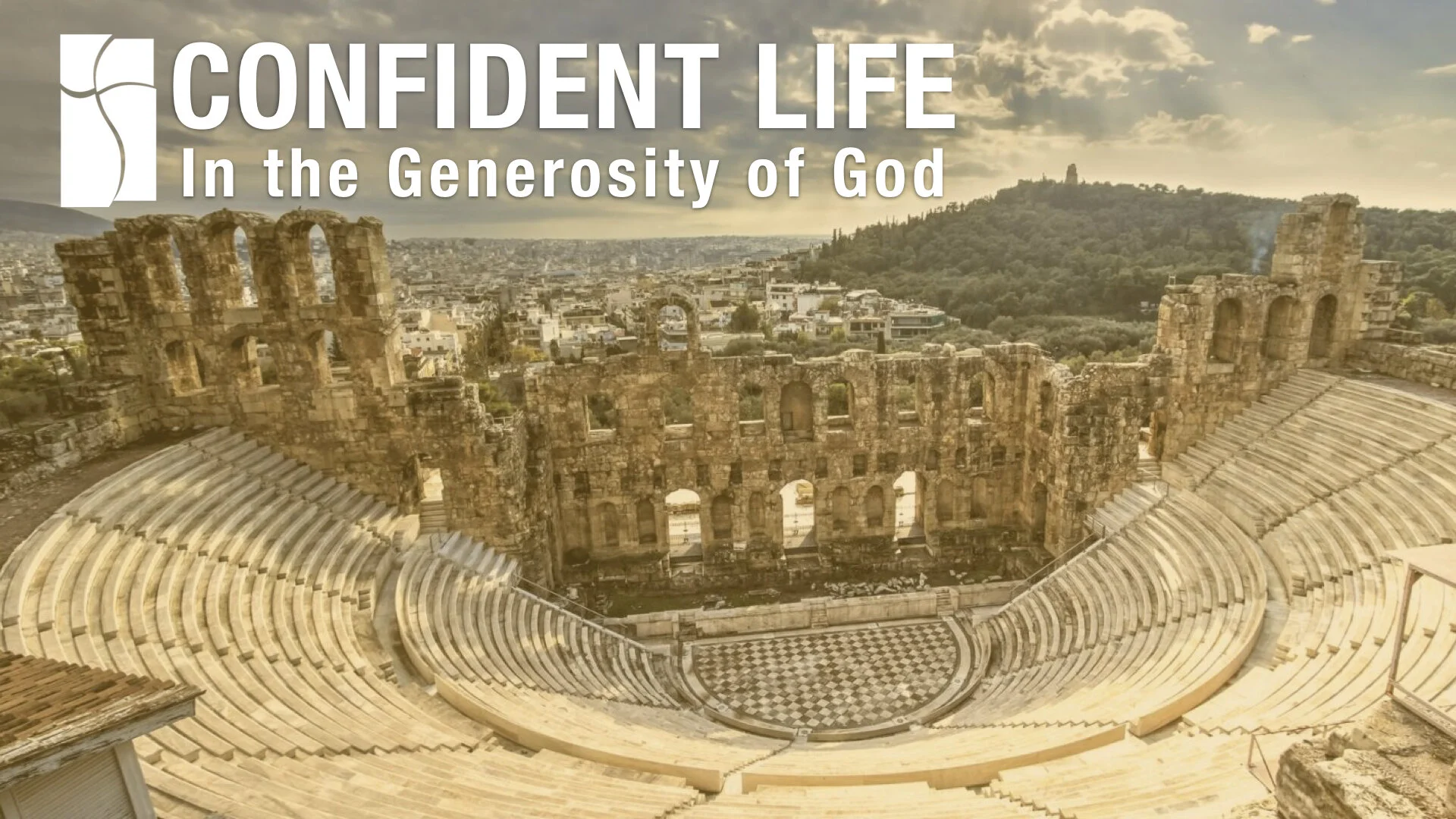Confident Life in the Generosity of God
God’s Choice of Generous Grace Jesus taught farmers and fishermen about treasures in God’s realm, serving God and Mammon, and choosing not to be anxious about life. Paul gave us the example of persecuted, impoverished believers overflowing with simple generosity. It’s hard to relate. We in the US are well-off in the world at large but most of us don’t feel rich enough to be generous. We like generosity. Henry Ford or Bill Gates makes a pile of money, sets up a foundation, becomes “good,” a benefactor. We learn generosity as a function of wealth. That’s “love of honor” (a payoff) not simple generosity. The striking thing in the NT is Generosity of the Poor, not for any glory but to learn God’s grace by simply seeing and helping the needs of others. There’s no virtue in poverty nor any necessary evil in wealth, but there’s danger in both. Dispair and rage, corrupt power, blindness to others, etc. All along the spectrum, we learn that Mammon saves. God’s grace draws us to see simple, non-manipulative generosity as a core of life for everyone no matter what their circumstances. Seek to share in the practice of Grace!
The Generosity of Grace
ar hearing Jesus’ teaching about serving God and Mammon and about being anxious about life. How can I live that in a world organized around Mammon and powered by anxious, competitive desire. Serving Mammon is our default setting. Each Sunday: “Worship through Giving.” What does it mean? Offerings aren’t mere tokens. They’re a language of gratitude, spoken with money – the stuff we get in exchange for a portion of our life, energy, creativity. We all pay life to get money. It can become Mammon: getting money is fundamental. Jesus takes money very seriously: “More blessed to give...” Paul recognized the challenge of teaching Gentiles and Jews. Traditional religion is often bargain and payment. If God is good to me, I’ll pay a vow. I’ll give in order to get far more. Is God good, fair? Am I getting return for my faith, worship, gifts I bring? Doesn’t God owe me?
Light that Carries a Shadow
2 Corinthians 4:1-15
The Light and Darkness of Resurrection Life
We’re focusing on the light of Resurrection life. John tells of the Logos, creator of life, light shining in darkness, showing God’s glory, full of grace and truth. It all sounds very good, but he leads us through all that Jesus endured into crucifixion and then resurrection.
Resurrection is a challenge to believe as an event – like Thomas. But that’s just the start. Once I know it’s real, then comes the challenge of seeing everything through its lens. Resurrection life is new, in Jesus: the union of human physical life with God’s life. But it is life on the other side of death, incorporating death, conquering death. But God brings it into our world, our history in Jesus so that it shapes our life, values, and purposes, now.
In incarnation, Jesus brings God’s life into ours, takes our limitations – humble, suffering, all the signs of mortality we experience – dies with us. In resurrection, he takes our life into God’s life, shows how great God’s love is, builds hope and meaning into our life. Our lives now are shaped by the love embodied in his cross and the vibrant hope of his Life.
The Spirit’s Way of Transformation
2 Corinthians 3:1-18
Our Faces Unveiled to God’s Spirit and to Each Other
Last week we saw the whole life of God working by the Spirit in our lives to transform both the way we live now and as the creative power of new creation in the resurrection. Following Jesus, Paul reflects a lot on how he had seen the Spirit working in the lives of believers, even when they are manifesting difficult problems. His experience with the Spirit’s work has given him great confidence and boldness with all kinds of people. In 2 Cor 3:16-18 is a vision of that transforming process set in a meditation on scripture. But look at the image. A community of people, all engaged with God’s Spirit, who gives them freedom and boldness before God and with each other. Their faces (their whole person, identity, image) open to God and each other. They’re focused on seeing the reality, the glory of the Lord Jesus, who is the face / image of God and the true human. As they see it they are transformed into that image, ever increasing in the way they experience that reality/glory. But what’s in front of them is the mirror of Jesus in each other as the Spirit works in those lives to shape, challenge and embolden them toward the life given in Jesus.




